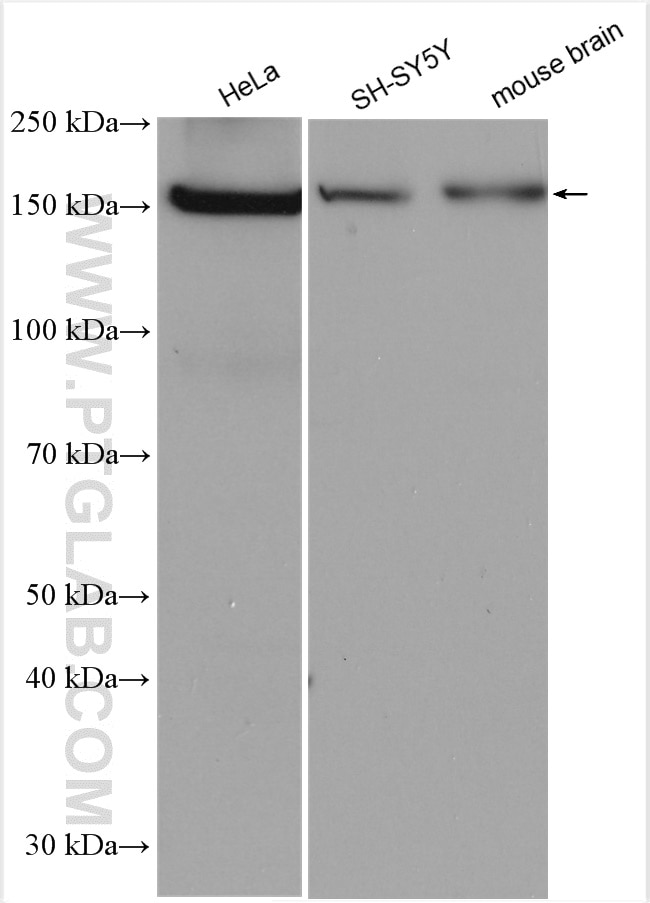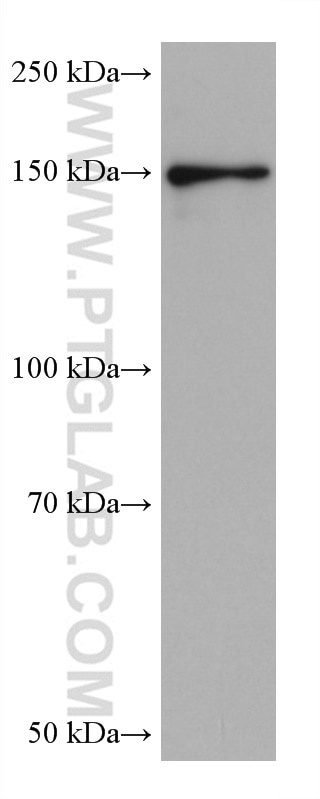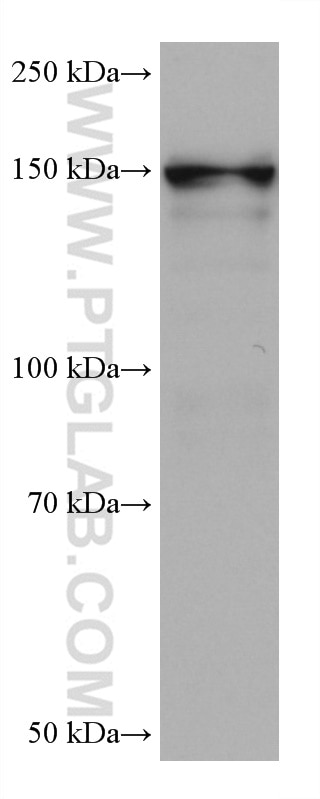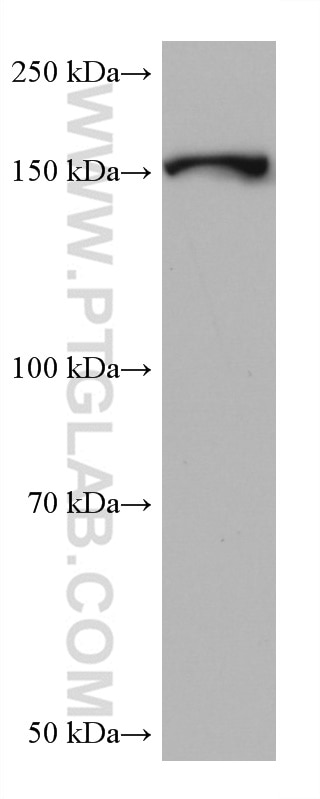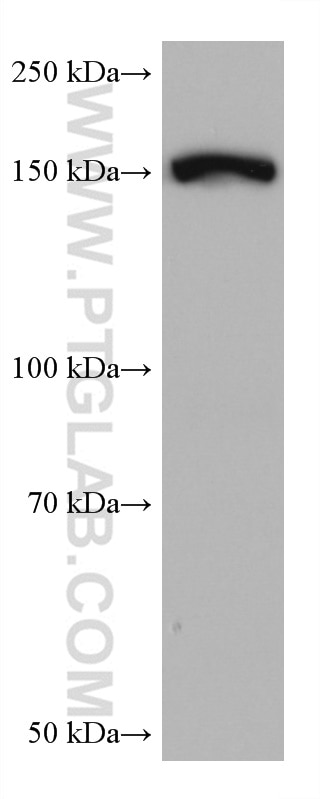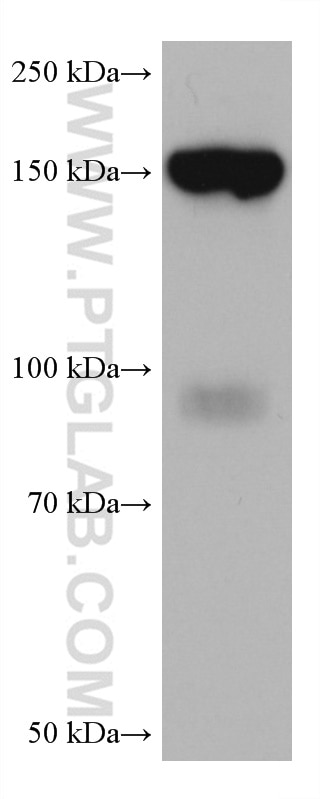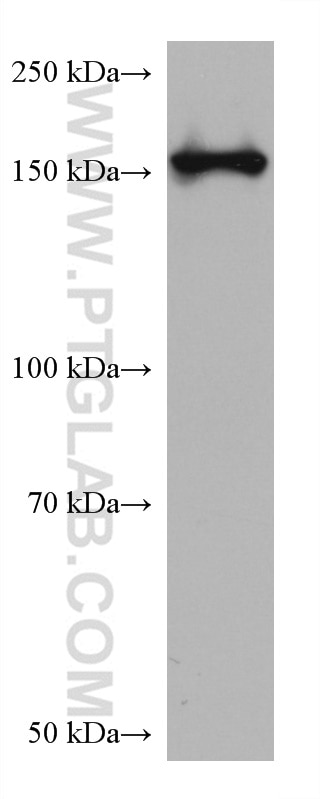Validation Data Gallery
Tested Applications
| Positive WB detected in | HeLa cells, MCF-7 cells, SH-SY5Y cells, pig brain tissue, rat brain tissue, mouse brain tissue |
Recommended dilution
| Application | Dilution |
|---|---|
| Western Blot (WB) | WB : 1:2000-1:10000 |
| It is recommended that this reagent should be titrated in each testing system to obtain optimal results. | |
| Sample-dependent, Check data in validation data gallery. | |
Published Applications
| WB | See 2 publications below |
Product Information
67821-1-Ig targets PPARGC1B in WB, ELISA applications and shows reactivity with Human, mouse, pig, rat samples.
| Tested Reactivity | Human, mouse, pig, rat |
| Cited Reactivity | rat, mouse |
| Host / Isotype | Mouse / IgG1 |
| Class | Monoclonal |
| Type | Antibody |
| Immunogen | PPARGC1B fusion protein Ag28861 相同性解析による交差性が予測される生物種 |
| Full Name | peroxisome proliferator-activated receptor gamma, coactivator 1 beta |
| Calculated molecular weight | 1023 aa, 113 kDa |
| Observed molecular weight | 150 kDa |
| GenBank accession number | BC132971 |
| Gene Symbol | PPARGC1B |
| Gene ID (NCBI) | 133522 |
| RRID | AB_2918584 |
| Conjugate | Unconjugated |
| Form | Liquid |
| Purification Method | Protein G purification |
| UNIPROT ID | Q86YN6 |
| Storage Buffer | PBS with 0.02% sodium azide and 50% glycerol |
| Storage Conditions | Store at -20°C. Stable for one year after shipment. Aliquoting is unnecessary for -20oC storage. |
Protocols
| Product Specific Protocols | |
|---|---|
| WB protocol for PPARGC1B antibody 67821-1-Ig | Download protocol |
| Standard Protocols | |
|---|---|
| Click here to view our Standard Protocols |
Publications
| Species | Application | Title |
|---|---|---|
Chem Biol Interact N-acetylcysteine delayed cadmium-induced chronic kidney injury by activating the sirtuin 1-P53 signaling pathway | ||
Sci Rep Dietary oleic acid intake increases the proportion of type 1 and 2X muscle fibers in mice |
